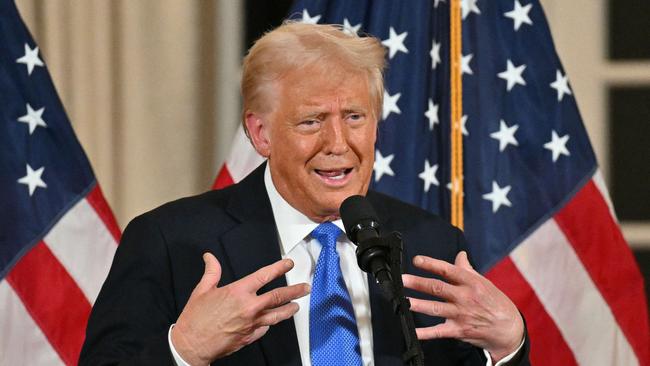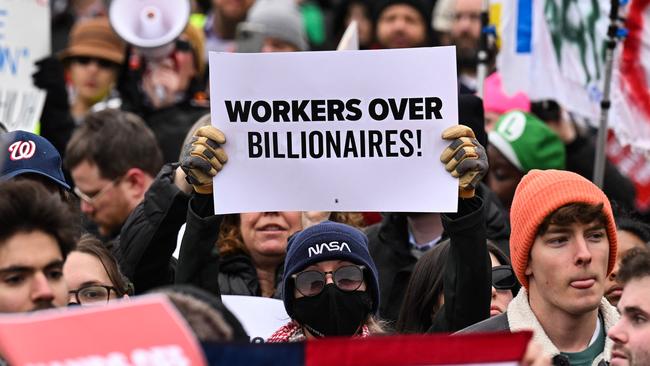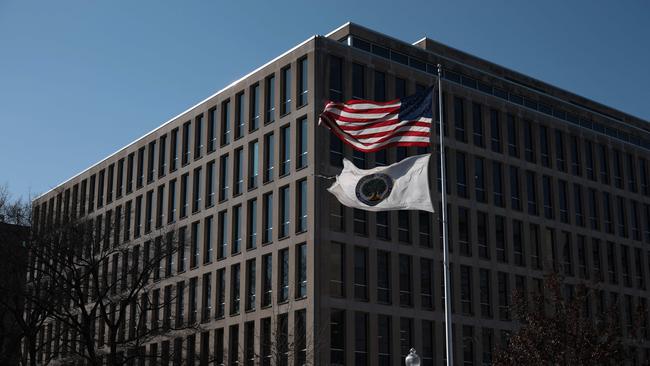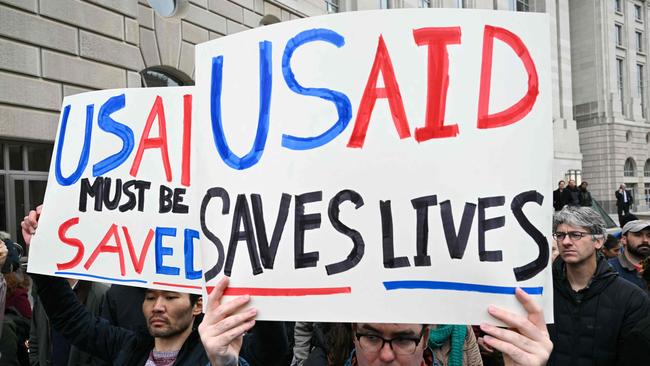Donald Trump’s WFH ban could see workers ‘sitting on top of each other’
A former government insider has claimed Donald Trump’s end to remote work could backfire, amid reports staff have been left “scared” by the ultimatum.
At Work
Don't miss out on the headlines from At Work. Followed categories will be added to My News.
Donald Trump’s mandate to force government workers back to the office full-time could leave some “sitting on top of each other” due to a lack of space.
The US President signed an executive order decreeing the heads of government departments must “terminate” work-from-home arrangements across the board, “compelling reasons” aside.
A former senior adviser to President Barack Obama, however, has said some offices “literally don’t have enough space” to house all employees, while staffers have questioned if the order was a means of forcing them to quit.
More than 60,000 workers have taken up take-it-or-leave-it buyout offers, with some telling news outlets in the US they felt there was no other option.
“What’s frustrating is that this administration has portrayed people like myself as the enemy to the American people,” Air Force veteran Shane Poole told USA Today.
“We are portrayed as lazy, incompetent, low productivity.
“It’s hurtful to see people cheering this on.”

Mr Poole, 41, was the lead instructional systems specialist at the Hill Air Force Base in Utah, and felt his recent promotion meant his job was in danger.
Department of Agriculture IT specialist Tony Yang, told the outlet he decided to take the buyout rather than travel 200km each way to his office.
“It was a hard choice. Honestly, I love my job and I didn’t want to leave yet. I am sad to leave my team,” Mr Yang said.
“But I feel like I have to settle for this.”
Jack Fingert, a senior adviser to President Obama, told the Washington Post the move would leave employees “sitting on top of each other”.
“There are some specific offices where they literally don’t have enough square feet per person,” he said.
Some workers have pledged to sabotage the decision by decreasing productivity when back in the office.
“It’ll be the opposite of ‘return to work’ because I’ll just be using more leave,” one civil servant wrote on a Reddit forum popular with federal workers.

Another said: “I will never volunteer another second of my day to answer a text or email or Teams message that would normally take seconds”.
The White House had told workers they had until midnight on Monday, US time, to accept buyouts from their positions by replying “resign” to department wide emails.
Reuters reports a source from the Treasury Department said staffers were stopping each other in the halls to ask if they would be leaving, “with many people saying they are scared because we are caught between two bad choices and very little time to make the decision”.
One of the main targets has been foreign development body USAID, with the Trump administration reportedly intent on cutting its workforce from 10,000 to 300.
Mr Trump has also attacked the Department of Education saying it was pushing “radical ideologies” on children and has spoken in the past of moving to “abolish” the organisation.
A judge ordered a temporary pause on the program after a lawsuit was launched by labour unions, ahead of a full court hearing on Monday.
“It’s a glimmer of hope that the courts might help us and block the whole resignation program,” an employee at the General Services Administration said.
Mr Trump’s campaign against the public service has led to street protests and claims by opponents that the moves contradicted several laws.

Some federal employees told the newspaper the mandate was a way of forcing them out of a job, citing a Wall Street Journal opinion piece penned by Elon Musk and Vivek Ramaswamy – the men Mr Trump tasked with leading the Department of Government Efficiency or DOGE.
“Requiring federal employees to come to the office five days a week would result in a wave of voluntary terminations that we welcome,” they wrote in November.
The President’s executive order signed on January 21 told department heads to take all steps to terminate remote work “as soon as practicable”.
“This memorandum shall be implemented consistent with applicable law,” it said.
Mr Trump said the order was one of almost 80 “destructive and radical executive actions of the previous administration, one of the worst administrations in history”.
“We will pause the hiring of any new IRS agents. We will also require that federal workers must return to the office in person,” he said.
About 80 per cent of federal employees work outside the Washington, DC metropolitan area, according to data from the Office of Personnel Management.

They include millions of workers across the country such as employees at veterans hospitals, labs, post offices, military bases, safety inspectors, park rangers and correctional officers.
There have been shifts away from the work-from-home arrangements born in the Covid-19 pandemic in the corporate world too, including in Australia.
Amazon, Dell, Tabcorp, and Flight Centre were just some of the major companies that announced new return-to-office mandates in 2024.
Natasha Hawker, managing director for HR and recruitment company Employee Matters, recently told breakfast television program Sunrise many employers would be reluctant to scrap flexible working benefits.
Ms Hawker said there were “enormous benefits” that come with working from home, which employees have now come to expect.
“What we have done by allowing our employees because of Covid to work from home, it is very difficult to put that genie back in the bottle, those employees really want that,” she said.
“When we recruit for our clients, we have candidates that will not go to an interview unless they have seen the working from home policy that says they can work from home.”
Originally published as Donald Trump’s WFH ban could see workers ‘sitting on top of each other’





